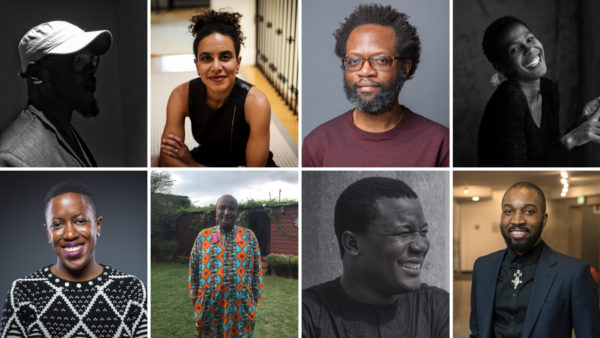
The shortlists for the 2018 Brittle Paper Awards were announced in October. Begun in 2017 to mark our seventh anniversary, the Awards aim to recognize the finest, original pieces of writing by Africans published online.
The $1,100 prize is split across five categories: the Brittle Paper Award for Fiction ($200), the Brittle Paper Award for Poetry ($200), the Brittle Paper Award for Creative Nonfiction ($200), the Brittle Paper Award for Essays & Think Pieces ($200), and the Brittle Paper Anniversary Award ($300) for writing published on our blog. The winners will be announced on Monday, 19 November 2018.
Meet the Finalists for the 2018 Brittle Paper Award for Creative Nonfiction
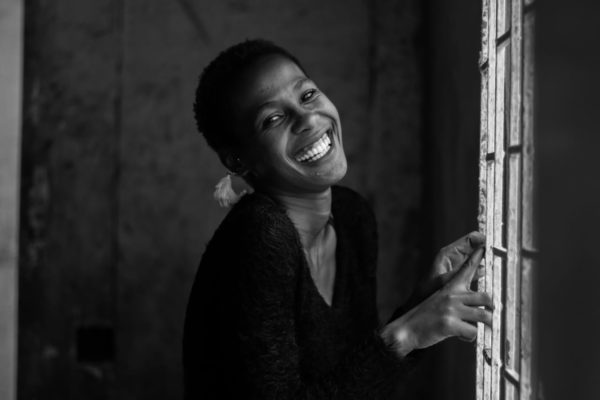
Sibongile Fisher (South Africa), for “The Miseducation of Gratitude,” in Selves: An Afro Anthology of Creative Nonfiction, published online in Enkare Review
Sibongile Fisher is a poet, writer and drama facilitator from Johannesburg, South Africa. Her short story, “A Door Ajar,” won the 2016 Short Story Day Africa Prize and was shortlisted for the 2017 Brittle Paper Award for Fiction and the 2018 Nommo Award for Best Short Story. She is a co-founder of The Raising Zion Foundation, an arts organisation that focuses on promoting literature, poetry and the performing arts in high schools. She holds a BCom degree in Marketing Management and a higher certificate in Performing Arts. Her short story, “A Sea of Secrets,” written for young adults, was published by Fundza under their mentorship program and it appears in their it takes two! volume 2 anthology. She is currently working on her debut collection of short stories.
From “The Miseducation of Gratitude”:
We are commonly known as black but we are a thick brown belt on the waist of history. We are holding his pants up, doing the disservice of keeping him dressed. He unbuttons his shirt like someone who has won a bet. Like a rapper who just dropped a hot sixteen over a tight beat. Like the one who survived the war before coming home to be forgotten. His chest hairs blossom into season and I am left wanting another song. He lives in a backroom small enough to be a secret, but inside it, the world between us keeps expanding. I don’t want to be here but I remove my jeans like someone who has been waiting for this moment. I can still count them on one hand, the men I’ve slept with, and so I add him to the list while my bra finds a home on his floor. I will add others as the years grow my age. In another wound, I am in my history class and there is a small section on African Independence. I count the pages. There are twenty pages on African History covering all fifty-four countries—which are now said to be fifty-seven. Fifty-Four. I am displeased at how it took us a week to go through African History when we spent an entire month on World War I. I go to war with my teacher over this and find myself outside of her classroom, which was also a media centre, with books no one ever read, books that were older than the school and that spoke about nothing we knew, books that didn’t represent us. Here, however, in this wound, his dreadlocks brush against my skin in a way that I don’t want them to. He’s at the carnival and I at the desert, thirsting for the time when I once loved him.
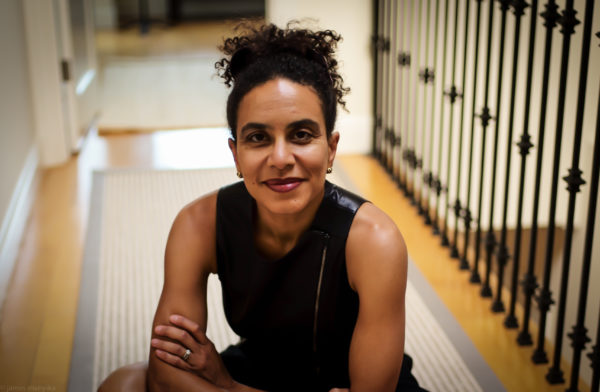
Sarah Ladipo Manyika (Nigeria), for “On Meeting Toni Morrison,” in Transition
Sarah Ladipo Manyika is a writer, academic, and overall lover of stories. She was raised in Nigeria and has lived in Kenya, France, Zimbabwe, and England. Her best-selling debut novel, In Dependence, was required reading in a number of high schools and universities around the world. Her second novel, Like a Mule Bringing Ice Cream to the Sun, was shortlisted for the UK’s Goldsmith Prize and the California Book Award. Her nonfiction includes personal essays and intimate profiles of people she meets, from Mrs Harris to Toni Morrison. Sarah was Founding Books Editor at Ozy Books. A lecturer at San Francisco State University, she currently serves as Board Director for the women’s writers residency, Hedgebrook.
From “On Meeting Toni Morrison”:
What I do remember is that the ceiling, walls, and carpet of the living room are all subtle variations of the dove-grey Hudson river they overlook; that light pours through the windows on all sides; not a bright light, but enough to give the room an airy feel. The warmth comes from the kitchen. Someone has thought carefully about the home’s furnishings—understated, modern, and contemplative, with accents from Africa. A Dogon figure, an Akuaba fertility doll, and a small Shona sculpture are all on display. And on the wall above the Shaker-inspired stairs leading to the top floor hangs a prayer board, reminding me of one of Victor Ekpuk’s decorative pieces which are fast becoming collectors’ items. I smile, feeling at home; this is simultaneously Kingston, Accra, Lagos, Harare and New York. I wonder if Ms. Morrison has ever visited the African continent. Nan in Beloved arrived in America “from the sea,” speaking a language that was not English. Would Ms. Morrison ever write a story set in Africa? And if so, what century would she set her story in? What would she say about slavery on the motherland?
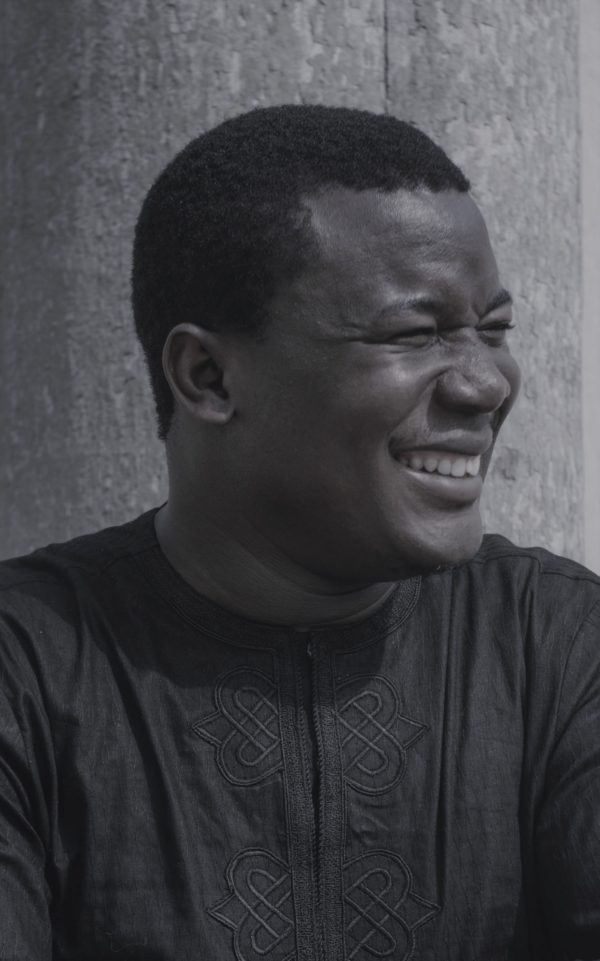
Kọ́lá Túbọ̀sún (Nigeria), for “A House for Mr Soyinka,” in Popula
Kọ́lá Túbọ̀sún is a linguist, writer, and scholar, born in Ìbàdàn, and educated in Nigeria and the United States. He has a master’s in Linguistics from Southern Illinois University, Edwardsville and a bachelor’s from the University of Ibadan. In 1999, he was awarded a Fulbright Foreign Language Teaching Scholarship at SIUE. In 2011, he worked as an adult literacy volunteer at the International Institute of St. Louis, Missouri.
He is the author of two poetry chapbooks: Attempted Speech & Other Fatherhood Poems (Saraba, 2015) and Headfirst into the Meddle (Khalam Collective, 2005); and of a full collection of poetry, Edwardsville by Heart (Wisdom’s Bottom Press, 2018), which is a also travel memoir about his experience in the United States. His poetry, essays, travel writing, and interviews have appeared in Aké Review, African Writer, Brittle Paper, International Literary Quarterly, KTravula.com, NTLitMag, Sentinel Poetry, among others.
Túbọ̀sún writes in English and Yorùbá, and has also been translated into Korean. In 2016, he was the first African recipient of the Ostana Premio Scritture in Lingua Madre (Ostana Special Prize for Writings in the Mother Tongue), given annually to those with a significant history of work in indigenous language advocacy and the revitalisation of threatened or endangered languages.
From “A House for Mr Soyinka”:
“All these you see,” Ṣóyínká points, “the forest, the moment you enter, from the place where you’re taking the picture, is completely reforested. It was the first task I set myself to: reforesting. That place was completely bare. It was most depressing just to see that place completely denuded and [the house] exposed.”
There are a few palm trees around the properties and, knowing him to be a palm wine connoisseur, I asked how much they have produced. “I used to have palm wine from over there,” he pointed at one. “In fact, I had a personal tapper, [but] they all gave up one after the other. I said, ‘Look, this what we will do. As long as you deliver a gourd, the rest is all yours.’ [But] he wanted an astronomical pay.” He sounded resigned.
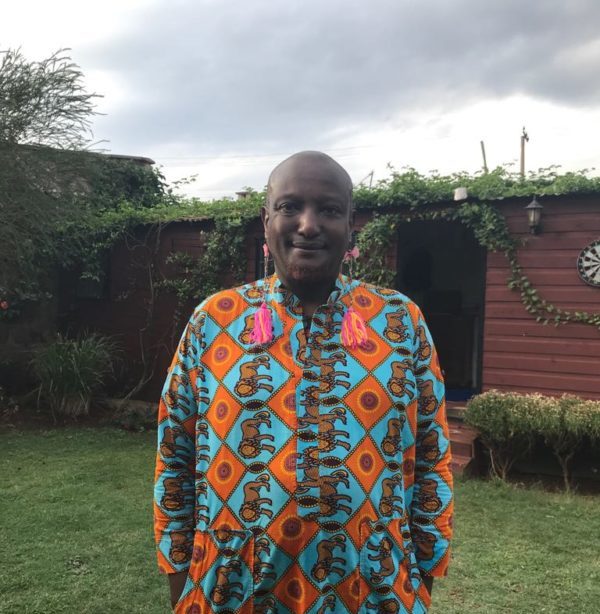
Binyavanga Wainaina (Kenya), for “Chapter Thirty-Three,” in Brittle Paper
Binyavanga Wainaina is the author of the memoir One Day I Will Write About This Place, which was picked for Oprah’s Book Club. He has taught at Williams College and Union College, and was Director of the Chinua Achebe Centre at Bard College, U.S.A. He is the recipient of numerous honours and fellowships, including the Caine Prize, and from Lannan Foundation, Africa’s Out!, and DAAD. He is the founding editor of Kwani? magazine. In 2014, he was included in TIME‘s list of the “100 Most Influential People in the World.”
From “Chapter Thirty-Three”:
It is autumn now, in my bed and breakfast room in Red Hook, New York, near Bard College, where I work. I took a long walk this evening. I walk and step on crushed leaves, watch the first golds and reds and rus- sets in this glorious light. It is such a charismatic season because it looks and feels like the ripening of things—but it isn’t. The leaves are dying. It has been a year and a half since Kenya went crazy. The screen of things blurred. During the violence, I refused to fly back to work in the United States in January. It felt like I was abandoning home. As soon as the peace agreement was signed, I left. I told myself I was done. Done with too much Kenya. I was going to apply for a green card. Visit for holidays. Save up to help get my family out if necessary. Love from a
committed distance.
At a reading and a talk at Williams College, I embarrassed myself and burst into bad snotty tears when I started to talk about Kenya. There is no tissue. Please, please, all podiums, have tissue!
I am in the habit of Kenya. I can’t, just, leave.

Oris Aigbokhaevbolo (Nigeria), for “How to Gossip About African Writing in Geneva,” in Catapult
Oris Aigbokhaevbolo is a writer, music reviewer, essayist, and film critic. His literary memoirs, reportage, and culture criticism have appeared in Chimurenga, The Africa Report, Brittle Paper, and The Guardian UK. For his work as a film critic, in 2014, he became the first writer invited for the film critic academies in Germany, South Africa, and the Netherlands in a single year. In 2016, he was the winter writer-in-residence at the island of Sylt in Germany. In 2015, he won the All Africa Music Award (AFRIMA) for Journalism, and in 2018, he won the Felabration Media Award. His essay, “Uniben Boy in Berlin,” was shortlisted for the 2017 Brittle Paper Award for Creative Nonfiction.
From “How to Gossip About African Writing in Geneva”:
Gappah opened the case, tuned the guitar, and played several songs decently, her talking voice, normally a self-amused entity, reconfiguring itself to deliver Tracy Chapman’s “Talkin’ ’Bout a Revolution” in something close to the dreadlocked singer’s spirit. A small crowd gathered. I thought: Did they know this was an award-winning writer? New Yorker Writer Plays Surprise Concert in Zanzibar seemed a possible headline. Would an impromptu book reading pull as much of an audience? Unlikely, I figured, as much of a writer’s fame is niche. Our hope is that though the literary priest commands a shabby hut of a shrine, the devout and her two friends find it. Gappah bought the guitar.
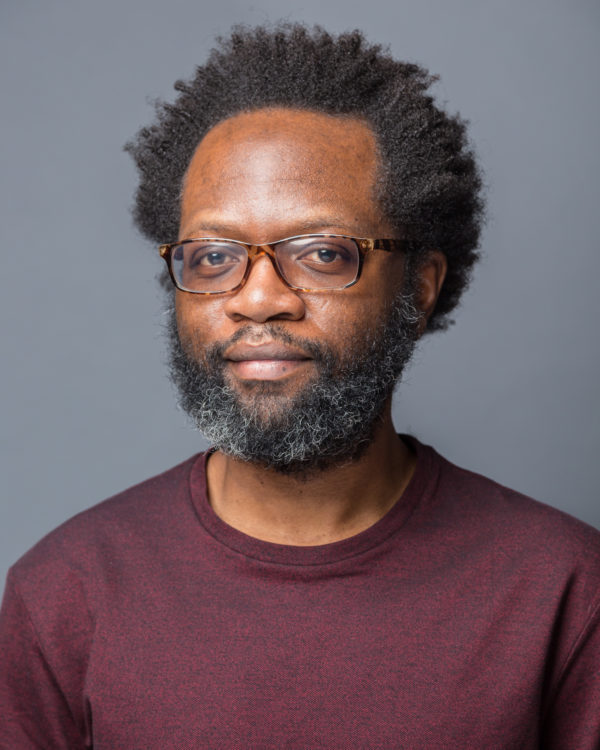
Tinashe Mushakavanhu (Zimbabwe), for “Home Means Nothing to Me,” in collaboration with Nontsikelelo Mutiti and Simba Mafundikwa, in Chimurenga
Tinashe Mushakavanhu is a Zimbabwean cultural and intellectual scholar. His current research is focused on the history of reading the nation state of Zimbabwe. He is a founding partner of Black Chalk & Co, a boutique agency engendering new forms of publishing and creative production. He holds a PhD in English from University of Kent, England.
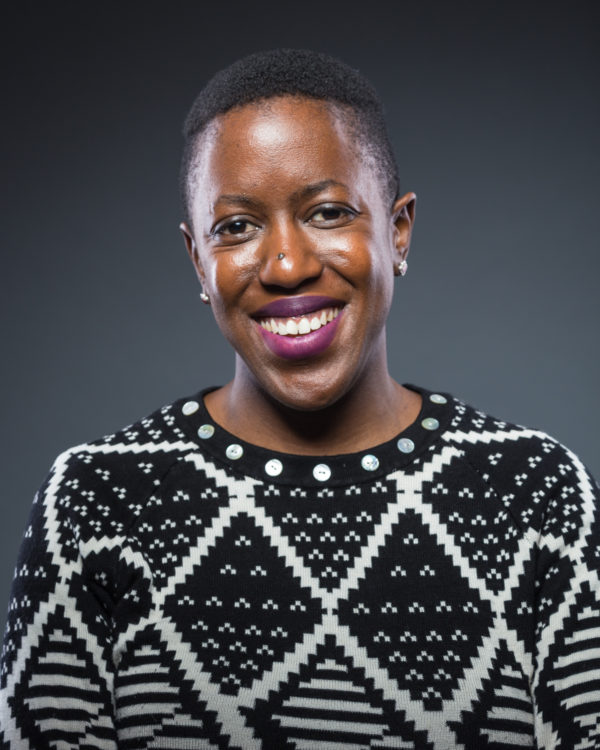
Nontsikelelo Mutiti (Zimbabwe), for “Home Means Nothing to Me,” in collaboration with Tinashe Mushakavanhu and Simba Mafundikwa, in Chimurenga
Nontsikelelo Mutiti is a Zimbabwean-born interdisciplinary artist and educator. She holds an MFA from the Yale School of Art, with a concentration in graphic design. Mutiti produces project-based works and art directs readingzimbabwe.com. She co-founded Black Chalk & Co. She is currently Assistant Professor in Graphic Design at Virginia Commonwealth University. Her website is nontsikelelomutiti.com.

Simba Mafundikwa (Zimbabwe), for “Home Means Nothing to Me,” in collaboration with Tinashe Mushakavanhu and Nontsikelelo Mutiti, in Chimurenga
Simba Mafundikwa was born in New York City and raised in Harare, Zimbabwe. He studied architecture and graduated cum laude from the State University of New York at Delhi. His areas of interest are sustainability, energy efficiency, and the urban landscape. His aptitude for design translates into photography and a love of art.
From “Home Means Nothing to Me”:
Harare and Zimbabwe merge in Marechera because of his own experience. Before exile, Marechera’s experience is in a small town, in Rusape at St. Augustine’s, Penhalonga, where he went to school, so in the east of Zimbabwe. He leaves Zimbabwe, comes back and his experience of Zimbabwe is just Harare. So he interacts with Zimbabwe from Harare. And in a lot of ways nothing has changed in Zimbabwe. Zimbabwe has always been Harare-centric. So the Zimbabwean experience has always been centred around Harare. So, you know, Bulawayo has its own fascinating history but in the big scheme of things it’s a peripheral, footnote to the history of Zimbabwe. So locating Marechera in Harare was also trying to complicate that because in a way, yes he has become an everyday man, or an every man, but then we are also forcing him into a space that is repulsive to him. So we’re trying to play around with his identity as a writer. Is he a writer from Harare or is he a writer from Zimbabwe? So while it was locating him in a space it was also poking fun at that idea of labeling a writer or locating a writer in a specific place.
Enquiries, about the shortlisted writers or for interviews with them, can be sent to [email protected].
READ: The 2018 Brittle Paper Award for Fiction: Meet the 5 Finalists
READ: The 2018 Brittle Paper Award for Poetry: Meet the 6 Finalists
READ: The 2018 Brittle Paper Award for Essays & Think Pieces: Meet the 7 Finalists


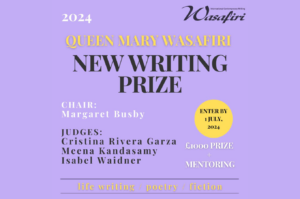
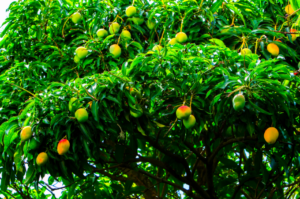


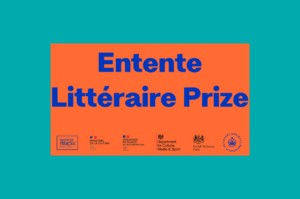


COMMENTS -
Reader Interactions